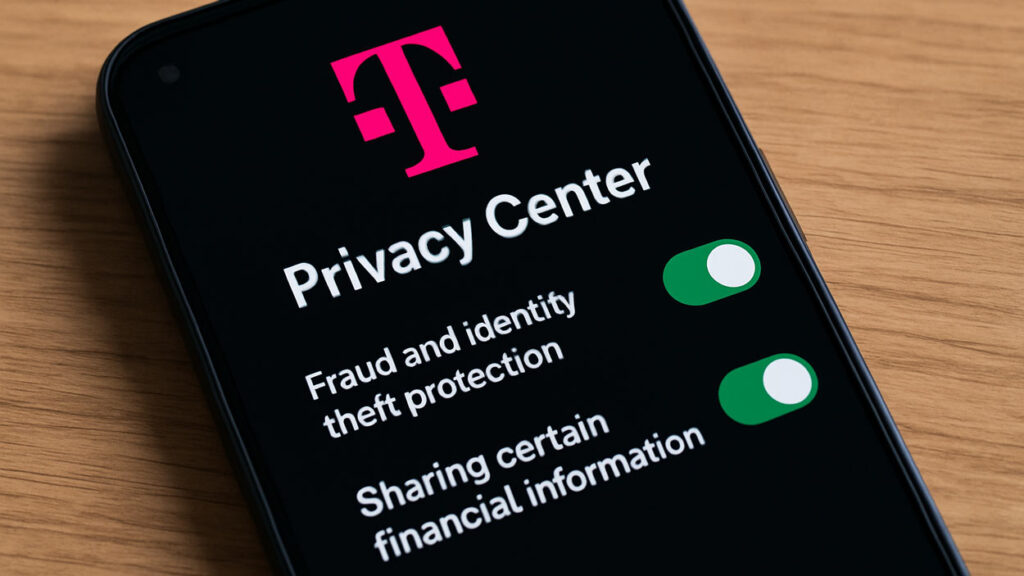T-Mobile is under fire for rolling out two new privacy settings that are turned on by default and allow expanded data sharing.
Quick Summary (TLDR):
- T-Mobile added two new privacy toggles for data sharing in its app’s Privacy Center.
- Both settings are enabled by default, requiring manual opt-out.
- Critics say this threatens user privacy and transparency.
- The changes have sparked user backlash and may invite regulatory scrutiny.
What’s Going On With T-Mobile?
T-Mobile has quietly introduced two new privacy settings in its Privacy Center that allow the wireless carrier to collect and share more of your personal information than before. Even more troubling? These toggles are turned on by default.
The two toggles are labeled:
- “Sharing certain financial information”
- “Fraud and identity theft protection”
While the second setting might sound helpful at first glance, many users and privacy advocates say both options raise more red flags than they resolve.
What Each Setting Actually Does
The first toggle permits T-Mobile to share your financial data, including information used for joint marketing and assessments of creditworthiness. That could mean your data is going to third-party companies you’ve never heard of.
The second toggle is marketed as a fraud prevention feature. It allows T-Mobile to monitor your activity, like changes to contact information or unusual calling patterns, and share that with banks and partners to flag potential fraud.
But here’s the kicker: there’s little transparency about exactly what data is being collected, how it’s secured, or who it’s being shared with. That ambiguity has privacy experts and users deeply concerned.
How to Opt Out
If you’re looking to take control of your data, here’s how to disable the new settings:
- Open the T-Life app.
- Go to the Manage tab.
- Tap the gear icon in the top right.
- Scroll to Privacy and Policies and tap Get Started.
- In the Privacy Center dashboard, switch both toggles off for each line on your plan.
It might be a bit of a hassle, but for many, the peace of mind is worth it.
Why This Matters Now
T-Mobile’s decision to opt customers into expanded data sharing by default runs counter to the industry trend of opt-in privacy models, where users are asked to actively consent to new data usage.
The timing couldn’t be worse. Consumers are already on edge due to a string of high-profile data breaches, including T-Mobile’s own in 2021 and 2023. Trust is fragile, and this move could push some users to consider switching providers.
As scrutiny from the Federal Communications Commission and state regulators intensifies, T-Mobile may find itself at the center of a legal or reputational storm.
CoinLaw’s Takeaway
Honestly, this kind of move feels sneaky. If T-Mobile really believed these privacy settings were in the customer’s best interest, why not be transparent and ask for consent up front? Instead, they tucked the toggles deep in the settings and hoped no one would notice. I get that companies want to monetize data, but this default-on approach just doesn’t sit right with me. If you haven’t checked your T-Mobile settings lately, now’s the time.
